19+ Sample Room Lease Agreement
-
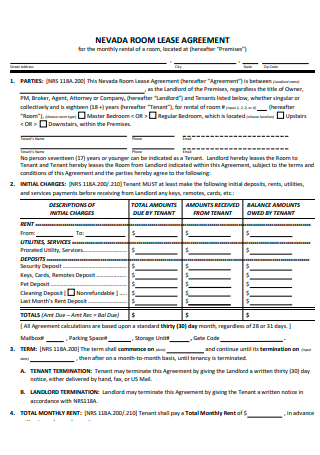
Room Lease Agreement Template
download now -
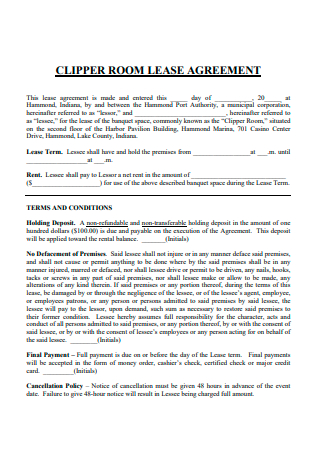
Basic Room Lease Agreement
download now -
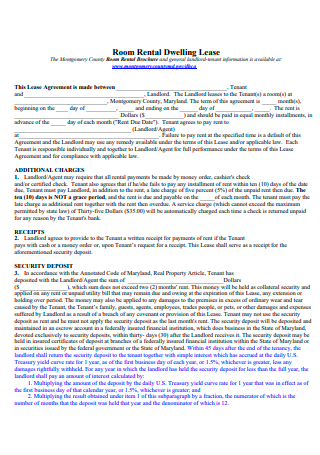
Room Rental Lease Agreement
download now -
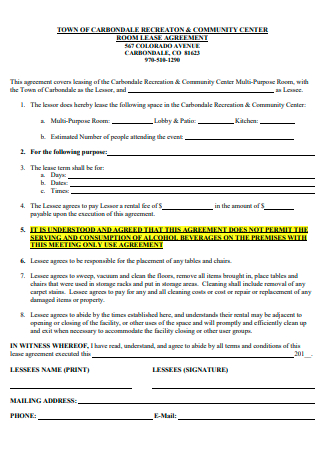
Room Lease Agreement Example
download now -
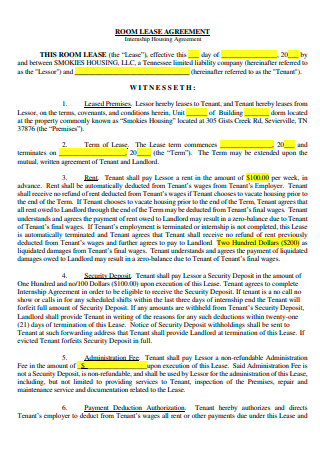
Printable Room Lease Agreement
download now -
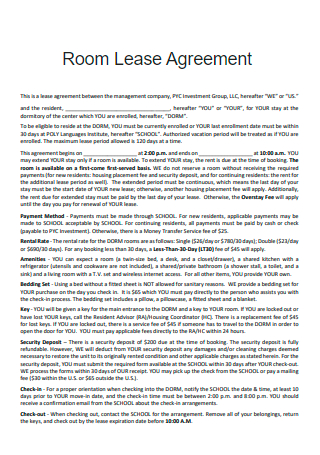
Room Lease Agreement in PDF
download now -
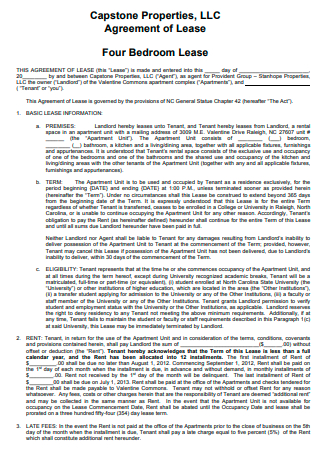
Four Bedroom Lease Agreement
download now -
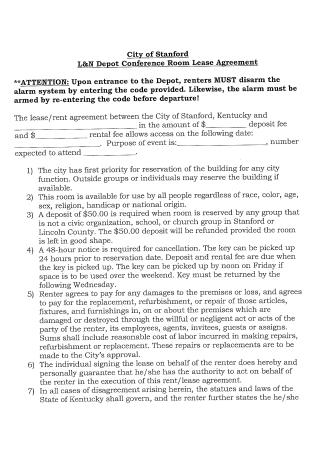
Conference Room Lease Agreement
download now -
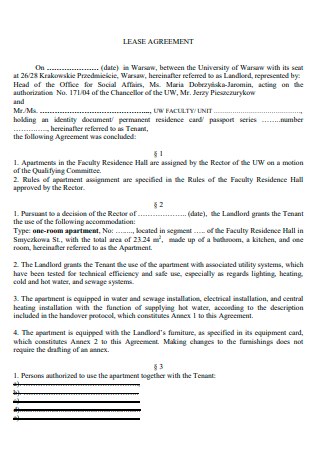
One Room Apartment Lease Agreement
download now -
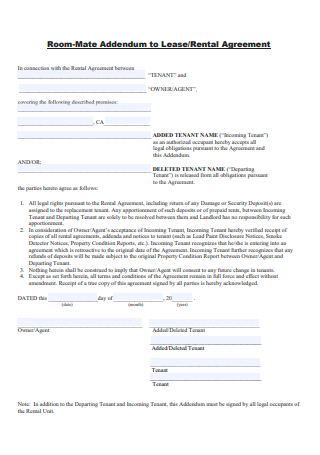
Room-Mate Lease Rental Agreement
download now -
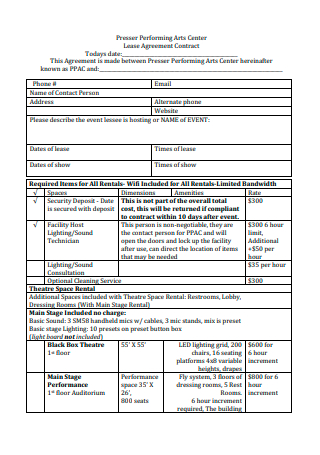
Room Lease Agreement Contract
download now -
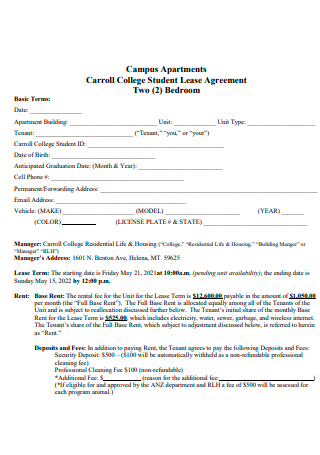
Two Bed Room Student Lease Agreement
download now -
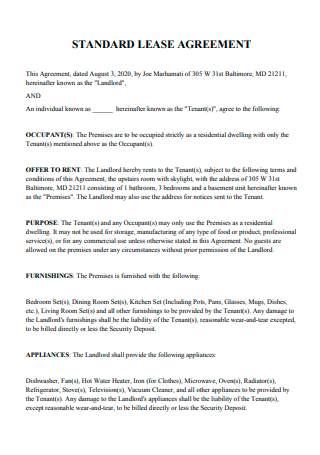
Standard Room Lease Agreement
download now -
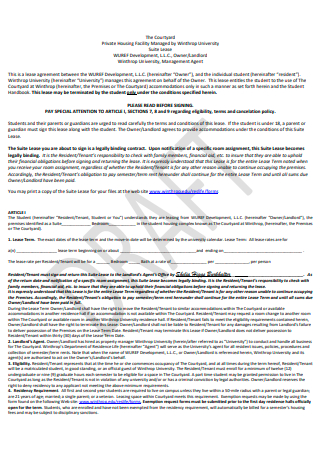
Draft Room Lease Agreement
download now -
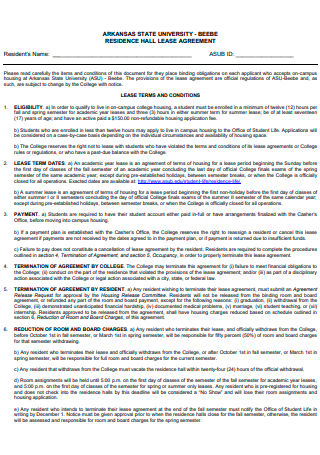
Residence Room Hall Lease Agreement.
download now -
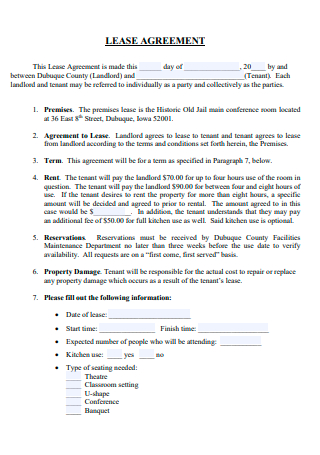
Room Lease Agreement Format
download now -
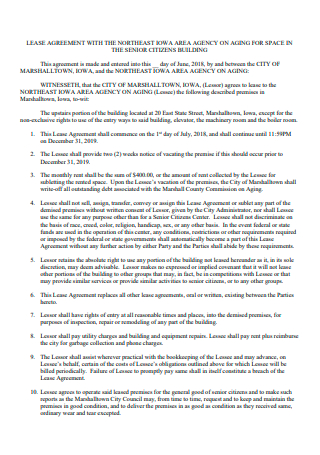
Simple Room Lease Agreement
download now -
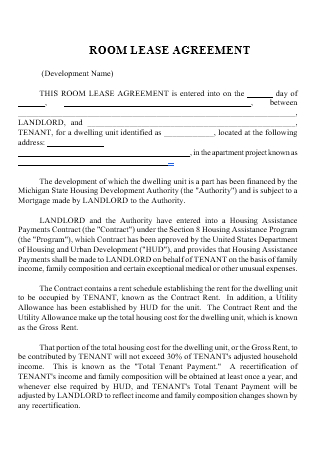
Room Lease Agreement in DOC
download now -
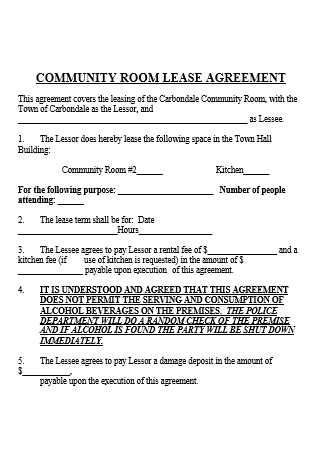
Community Room Lease Agreement
download now -
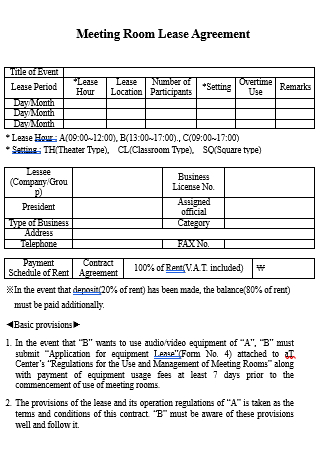
Meeting Room Lease Agreement
download now
FREE Room Lease Agreement s to Download
19+ Sample Room Lease Agreement
What Is a Room Lease Agreement?
What Is the Importance of Room Lease Agreement?
What to Include in the Room Lease Agreement?
What Is the Difference Between a Lease and a Rental Agreement?
What Are the Elements Found in a Room Lease Agreement?
How Do You Write a Room Lease Agreement?
FAQs
Can You Rent Out a Room if You Are Renting?
Can I Get Kicked Out if I Am Not on the Lease?
What Is the Difference Between a Tenant and a Lodger?
In most cities where the working class are, some houses—specifically the spacious ones—are rented out. Which means, the importance of Room Lease Agreement is becoming a priority due to certain rules and responsibilities of both homeowners and renters.
What Is a Room Lease Agreement?
A room lease agreement is a contract between two parties—where the lessee being the one who is renting or leasing the property, and the lessor who is the owner—wherein, particular conditions are mentioned about renting or leasing the property. It is a legal agreement that gives the lessee the right to occupy the property for the tenure mentioned on it, but does not give them the right to own it. In addition, the lease also carries specifications, instructions, and conditions the lessor has laid down and accepted by both parties, during the tenure of their occupancy in the property. This type of agreement is a very crucial document for both parties: the one who is renting it out and the one who is giving his property on rent. There are several issues wherein the lessor has signed an agreement and the lessee has misused the property or sublet it.
Similarly, in a situation where there are several old houses being sublet, there are cases pending for years together against the lessees who have refused to vacate the property of a lessor. And, there is also a case of increasing the rents or the percentage of increase one has to bear year after year or after a specific duration as mentioned by the lessor.
Generally, it is important to understand what needs to go into your lease agreement while renting your property. The lease agreement is a legally binding document which is notarized and signed by both parties, and thus, makes it mandatory for them to follow the instructions in it.
What Is the Importance of Room Lease Agreement?
Common uses for a room lease agreement are the following:
Your roommate has guests consistently coming over. A room lease agreement is important for keeping your place private, quiet, and undisturbed—allowing you to outline days of the week when roommates cannot throw parties, cause excessive noise, or have uninvited guests.
The person you are renting to has a partner. If you are uncomfortable of your roommate or other tenants having their significant others over 24/7, a room lease agreement can help set boundaries for when they are, and are not allowed. An additional reason is having someone not covered under the lease can result in increased electricity and other utility bills, or other precarious situations.
You want to share household chores and expenses. Executing a room lease agreement allows parties to determine how household and other important costs are divided. After all, no one wants to end up being the only roommate washing dishes or paying for cleaning supplies, while the other sits back and does nothing.
You want to establish quiet hours. Establishing quiet hours is important for not only a tenant’s comfortability but their sanity as well since, noise complaints are one of the most common causes of concern for roommates and possible tenants.
You want to provide for property maintenance duties. The burden for basic maintenance duties should not fall solely on one party, so make sure to provide for these situations in your agreement: on winter months, someone will have to shovel the driveway, decks, and other community areas. And, on summer, someone will have to mow the grass and attend to other general lawn-care duties.
What to Include in the Room Lease Agreement?
The essential inclusions in a room lease agreement are the following:
What Is the Difference Between a Lease and a Rental Agreement?
Both lease and rental agreements are between a lessor and a lessee. However, a lease agreement is created when the lessor provides the use of a property for a period of time, and a one-time payment is made out by the lessee, after signing in the agreement. On the other hand, rental agreements, the contract states the monthly rent to be paid, the date on which it needs to be done, as well as the tenure of occupancy.
A lease agreement is made for extended periods. Sometimes, even up to five years, and extensions require a new agreement to be documented. Both are legally authorized and carry a huge value when you need to contest a court case on the rights of occupancy or on any other issues relating to the said property.
What Are the Elements Found in a Room Lease Agreement?
A simple room lease agreement will identify the following elements:
How Do You Write a Room Lease Agreement?
When writing a room lease agreement, there are a lot to consider but the following is what needs prioritization:
Step 1: Term of Lease
The room lease agreement is the use of a property for a period of time, and also, a one-time payment is made out by the lessee beginning on the starting date.
Step 2: Termination
Either party may terminate this agreement within 30 days written notice and personally delivered to the other party. Homeowner may terminate this agreement with 7 days written notice if the renter is in default under this contract.
Step 3: Rent and Security Deposit
Annual rent should be paid by the renter to the lessor on or before the agreed date. Rent must be paid in cash, money order, or cashier’s check. In addition, renter will pay homeowner a security deposit as security for any damages to the property caused by renter. The security deposit will be returned to renter within days for deposit return of termination of this room lease agreement, less any deductions for damages, with an accompanying itemized statement explaining any deductions.
Step 4: Utilities
Renter will be responsible for payment of the percentages of the monthly utility bills like gas, electricity, water, garbage, phone, internet, cable or satellite TV, usage of certain appliances, and others.
Step 5: Conflict Resolution
To maintain household harmony, the parties should agree to make reasonable efforts to maintain a peaceful environment within the house work together to resolve any differences.
Step 6: Modifications
This room lease agreement constitutes the entire agreement between the parties and cannot be changed unless both agree in writing to do so.
FAQs
Can You Rent Out a Room if You Are Renting?
If you are just a renter, you will need to check your lease agreement to find out whether or not you can rent out a room in the property as part of your lease. Generally, out of decency, you will need to get permission from the manager or owner of your property before renting out a room.
Can I Get Kicked Out if I Am Not on the Lease?
Yes, of course. A landlord can evict you if there is no lease. If there is no written lease, it is possible that you have an oral agreement based on a verbal understanding with the landlord. This oral agreement and its terms will be valid and enforceable if the lease period is one year or less.
What Is the Difference Between a Tenant and a Lodger?
If you live in a house and you rent a room in that same house to another person, that person is a lodger. You have to live in the house with the person the entire time for him or her to be a lodger. On the other hand, if you rent a room in an empty house to somebody, he or she is considered to be a tenant. This means, no sharing of the property.
Room lease agreements are great tools to hold back potential issues before they escalate, and allow parties to open up communication channels. When entering into a housing agreement, parties often miss out simple and obvious points of future contention, so think of a room lease agreement as a catalyst for starting particular difficult conversations early on. Room lease agreements should be used when you want to clarify and express the obligations, expectations, and responsibilities of both parties, and want to provide a harmonious living environment.
